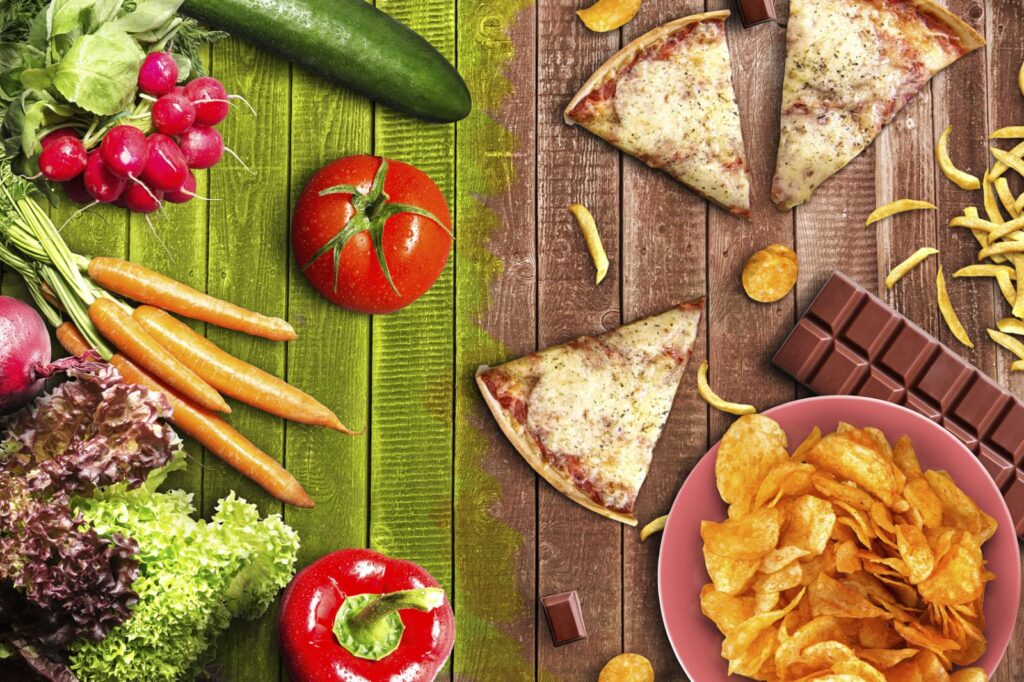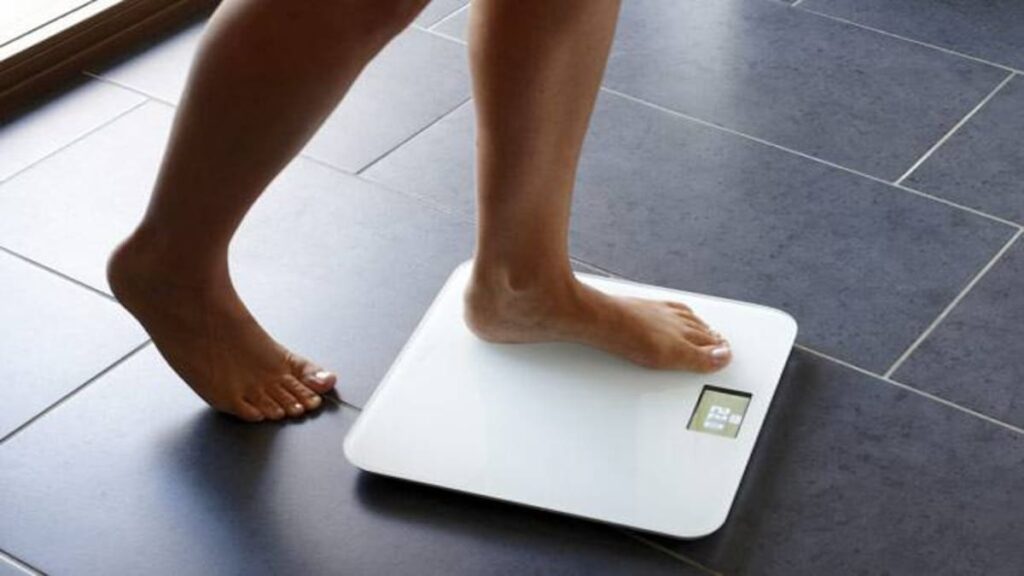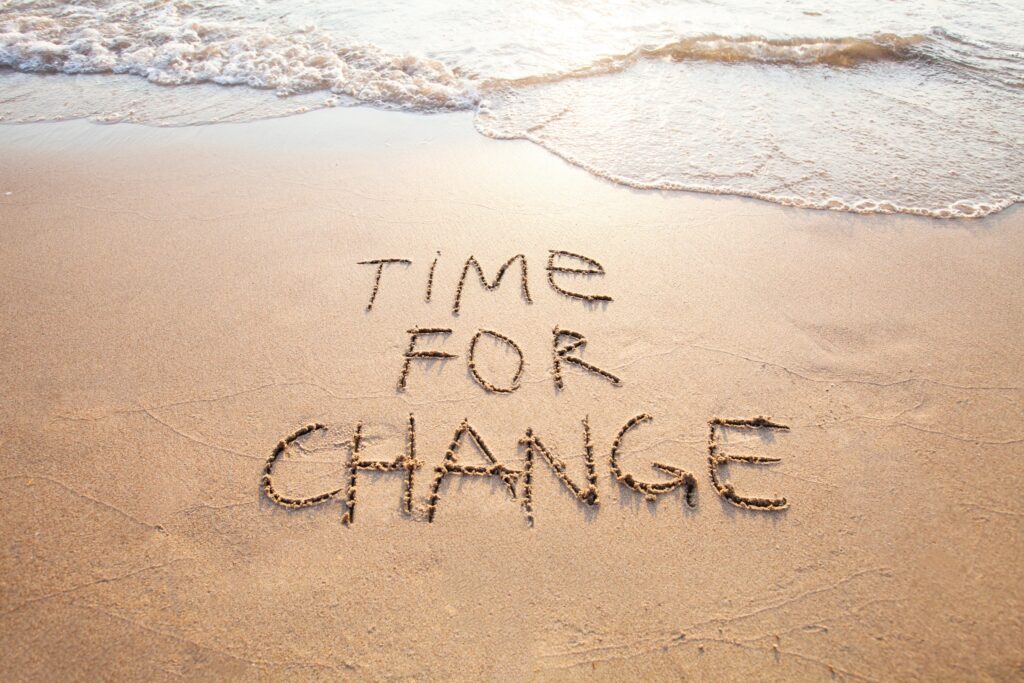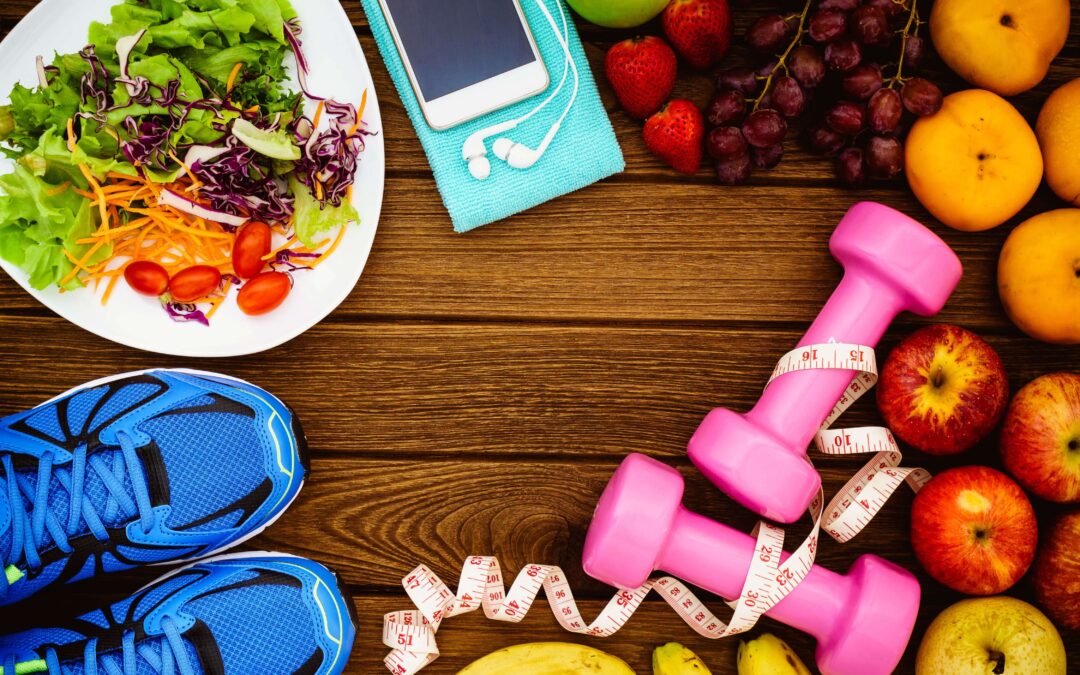Credit: HealthyfiMe
We all know the stereotype: people across the United States have terrible dietary habits. The fact is something that has been poked at in television and film for years now. It’s something we might chuckle at, but otherwise shrug off, but it shouldn’t be.
Doctors across the board agree that the biggest problem with the typical American diet is too many calories. More than 68% of Americans are considered overweight or obese. What’s worse, most of the foods regularly eaten are the “bad” foods– high amounts of salt, processed meats, red meat, and sugary drinks– and restaurants make the problem even worse with massive proportions. In a study of 700,000 deaths in 2012 from heart disease, strokes and diabetes, participants were asked about their eating habits. Most fell short on the “good” foods– nuts and seeds, seafood, fruit and vegetables, whole grains.

Credit: Parisi Speed School
Sure, foods are fuel — but not all fuels are created equal. Find out what will keep you going for longer — and what could leave you feeling sluggish pretty quickly: https://t.co/lUUnThmBG7 pic.twitter.com/taqCDhnNW3
— WebMD (@WebMD) June 8, 2021
Undereating these important food groups is just as dangerous as overeating the bad. According to CBS News, over and under consumption of important food groups contributes to nearly half of deaths related to heart disease, strokes, and diabetes.
But the average American’s poor diet is more than the food available to them– it is the relationship they have developed with the food. Mindless eating, nighttime snacking, snacking around the clock, skipping breakfast, emotional eating, eating too quickly, and more are all traps we fall into. On top of that, most Americans do not move as much as they should, causing a higher rate of weight gain.
According to the Cleveland Clinic, about 80% of adults and children in the United States don’t get enough exercise. Given that exercise has been implicated to reduce the risk of death from heart disease, high blood pressure, type 2 diabetes, other heart-related events, and various cancers, it is clear how both proper diet and physical activity are essential to one’s health.

Credit: self.com
“Even just minimal amounts of exercise is better than nothing,” Dr. Haitham Ahmed says. “If you just go up an extra three flight of stairs per day — during the morning, at your lunch break, in the evening — over a long period of time that really adds up.”
When the average person steps on the scale and finally decides “enough is enough,” getting started on their weight loss journey is difficult– especially for women. Women across the world are expected to adhere to a higher standard of beauty than their male counterparts. Since the time they were teenagers, many young women are held to an unattainable standard of beauty.
The problem is so severe that, in a study with 559 seven to 10-year-olds, 36% said they were made to feel the most important thing about them was their looks, 38% said they were not pretty enough, 35% agreed women were judged more on their appearance than their abilities, and 23% felt they needed to be perfect. When children recognize the unfair perceptions women endure, it becomes painfully clear how much of a problem it is.

Credit: self.com
“Unfortunately, despite the incredible toll that obesity takes on our society, very little has been done in the medical community or by healthcare providers to provide assistance, counseling, and practical guidelines for our overweight patients,” Dr. Dale Eubank, a weight loss doctor in Corpus Christi, Texas says. “This has led many patients to seek fads and gimmicks offered on television and the internet to deal with their weight which very often are ineffective and sometimes dangerous.”
Many site their desire to lose weight as stemming from a desire to look good. While wishing to be confident in one’s appearance isn’t a bad thing by any means, it shouldn’t be the sole reason. Losing weight shouldn’t be one’s way to be accepted by someone, it should be done so that they feel happy and healthy. Fixing one’s diet is half the battle. Fixing one’s relationship with food is the other half.

Credit: India Today
But for women in particular, potential weight gain could be a result of more than a poor diet and exercise. Certainly increasing or decreasing these aspects were appropriate is important, but it isn’t the whole story. Due to how wildly women’s hormones fluctuate throughout the month, it is harder for women to lose weight than men. In a Ted Talk with a personal trainer, James Smith discusses how a woman’s menstrual cycle massively impacts their fat loss.
“At the end day, we can either fight physiology or society, and if you fight your physiology to be as skinny as you can, you will lose that battle,” Smith says.
Extreme diets and training sessions aren’t the way to lose weight in a healthy, permanent way. As Smith says, weight loss is about understanding that weight gain is normal, and how to combat it when it happens. Weight loss shouldn’t force one into isolation– it should push one towards professionals who can actually help and not scare people away from doing what they love.

Credit: DNA India
It’s all about balance, and finding that balance is best done with the assistance of those who know what they are doing. Medically-supervised weight loss gives patients the insight they need for permanent weight loss in the way that best fits their needs. Why? Because they’re spearheaded by professionals who actually understand that weight loss involves one genetic makeup too, and should be individualized to fit their needs.
Healthy eating involves eating regular meals packed full of the vitamins and protein one needs to get them through the day. Though the amounts vary based on person to person, there are five key things one should do when trying to have a healthier diet: eat fruits and vegetables, drink enough water, limit both your sugar and salt intakes, and be mindful of food’s labels.
Regular exercise is key. No one can be expected to partake in high-intensity interval training one a daily basis, but everyone can get moving once a day. Going for a walk or a bike-ride is just as important as following an intense video program. These types of exercises have different benefits, both as equally as important as the other.
But as said above, everyone is different. No two people can follow the same regimen and have the same results. For some, losing weight might mean a stricter diet. For others, it might mean stricter exercise. For others, it’s a mix of both, with supplemental options to help boost fat loss. Things like lipo-plus injections or bioidentical hormone therapy include key vitamins and antioxidants that increase fat-loss and decrease cravings.

Credit: Healthline
It isn’t likely one would find the healthy, long-term weight loss option on their own, especially if they don’t realize what their problem is. More likely than not, one needs to address their unhealthy relationship with food head-on. A professional can help their patient realize this problem and overcome it in a healthy way.
Even just social support from friends or loved ones is more likely to lead to higher success in weight loss. According to the Mayo Clinic, emotional, practical, and inspirational support helps those attempting to shed some weight stay on track. This support will not only inspire those to stick to their diet or exercise regimen, but keep them focused when they stumble. It’s all too easy to beat oneself up when they slip up, and having someone to remind them that no one is perfect is always beneficial.
The journey to weight loss isn’t a linear path. It is full of bumps and twists that often cause people to throw in the towel before they can even see the light at the end of the tunnel. Instead of associating one’s weight loss with the dreaded word “diet,” people should start to think of weight loss within the parameters of “life-style change.”

Credit: Chiropractic Economics
“Motivation should come from family, friends, physicians and the media in educating about the health risks of being overweight,” Dr. Jian Zhang says.
Weight loss shouldn’t be done to fit someone else’s mold of what is beautiful or accepted. Weight loss should be something one partakes in for the sake of their health. Achieving a healthier weight lowers one’s risk of any of the above cardiovascular risks, certainly, but the physical benefits will be readily noticed. Things like knee pain, back problems, and even shortness of breath will dissipate more quickly than one expects.
Diet and exercise should be added to one’s life, not what consumes their life. With the assistance of professionals and loved ones, those on their weight loss journey can find that ever-crucial balance, as well as more clarity in what works for them.

